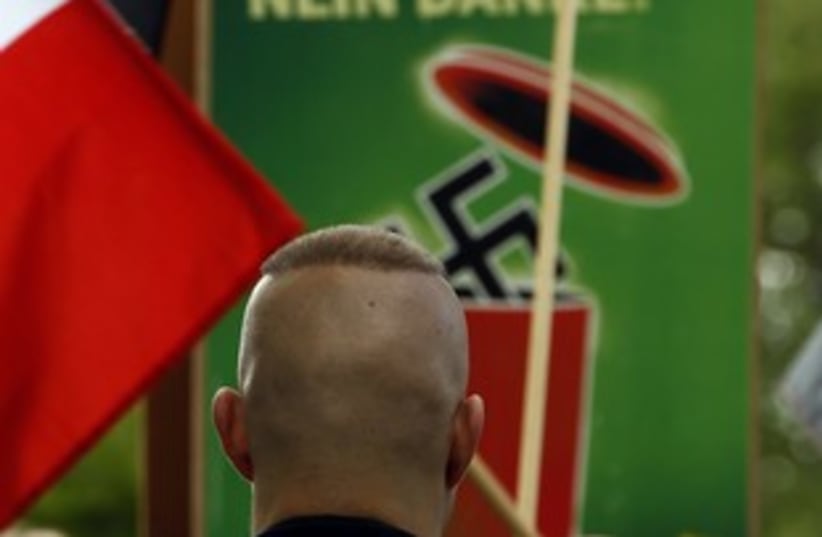Christian Democrats vote to act against "brutal threat"Merkel's Christian Democrats (CDU) voted unanimously at a congress in Leipzig on Tuesday to push for tough action against what the party called "a serious, brutal threat to our democratic life".The CDU urged the government to "intensify the fight against right-wing extremism" and to "find out whether the recent events provide grounds for a prohibition of the NPD".Conservative parliamentary leader Volker Kauder said he was in favor of exploring whether it would be possible to "root out this Brown weed" - referring to the brown shirts once worn by Adolf Hitler's Nazi Stormtroopers - by banning the NPD.A previous attempt to ban the NPD in 2003 collapsed because informants were used as witnesses. Many politicians are wary of trying again, not least because of the fear of pushing NPD supporters underground.Lorenz Caffier, the CDU's leader in the northern state of Mecklenburg-Vorpommern, one of the depressed former East German areas plagued by right-wing extremism and where the NPD enjoys support, told the congress "German society has to stand up to the extreme-right NPD with all our might, it is our democratic duty".With seats in two regional assemblies, the NPD received 1.06 million euros in taxpayers' money last year.The NPD is more radical than populist, anti-immigration parties in the Netherlands, Belgium, Austria and Sweden.Germany's Office for the Protection of the Constitution describes the NPD as racist, anti-Semitic and revisionist and says its statements prove its inspiration comes from the Nazis. The party says the German constitution is a "diktat" imposed by victorious Western powers after World War Two.Last weekend the NPD appointed Holger Apfel as their leader. He has tried to portray himself as the moderate face of the NPD and distanced himself from the newly-found terror cell, as well as condemning political terrorism and violence.
"Intelligence services failed to protect society" says veteran lawmakerGermany's domestic intelligence agency monitors far-right extremists but has in the last few years made little of the threat of violence from right-wing groups.One of the main charges leveled at the agency is that in its efforts to infiltrate right wing groups, it used unreliable informants. Critics even say money paid to the informants went to fund criminal activities.Top-selling Bild newspaper reported that a security agent had been very close to the scene of crime in six of the cases."There is much to indicate that the intelligence services did not fulfill their task of protecting society. They failed," veteran Greens lawmaker Hans-Christian Stroebele said."Not only did they let huge risks develop but probably 10 or more people have been murdered. Post-war Germany has not known this kind of drama until now," he told N-TV television.Families of some of the victims have said they thought all along the murderers were right-wing radicals.The Central Council of Muslims in Germany lamented what it described as a chronically neglected chain of violence against Muslims in the last 20 years."Obviously right-wing terrorism was rife and went unchallenged because the authorities looked too much in the direction of religiously motivated criminals," Council chairman Aiman Mazyek told the Osnabruecker Zeitung.Police discovered the neo-Nazi group, known to the Thuringia regional intelligence service in the 1990s but then forgotten, earlier this month when two of its members apparently committed suicide in a caravan in Eisenach in eastern Germany.Weapons involved in the murders were later found at a burned out house nearby in Zwickau that had been used both by them and by a woman called Beate Zschaepe, who has given herself up. A male suspected accomplice was arrested on Sunday.Other evidence uncovered included graphic DVDs prepared for sending to media and Islamic cultural organizations. They show a Pink Panther cartoon figure pointing out the scenes of the killings. Police say this indicates the group had inside knowledge of the attacks.
